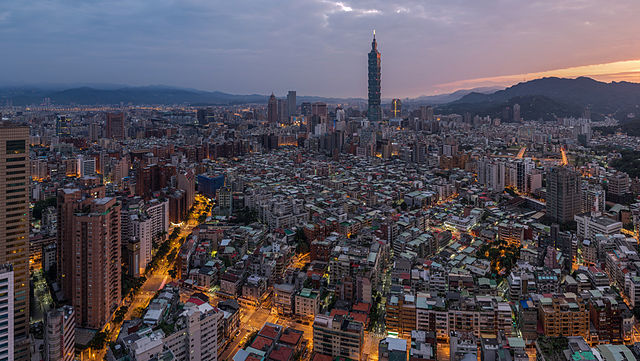Identity or Survival: Will Taiwan Have to Choose?

Taipei, Taiwan
Morgan Aikele – The murky waters surrounding Taiwan’s independence are nothing new. The desire of the island’s people to retain sovereignty has long remained a dominant sentiment, but so has the Chinese government’s will to reign it in. Several events, most notably Russia’s invasion of Ukraine, China’s expected push for reunification of Taiwan with the mainland, and upcoming elections in Taiwan, have provoked debates about Taiwanese national identity and the will to preserve it.
National identity refers to the sense of attachment that people feel to a given nation. One will typically feel more connected to one nation over any other and will reinforce that sense of identity by participating in that nation in a variety of ways. These can include supporting the nation’s sports teams, paying taxes, and/or serving in the armed forces. Taiwan’s people have long enjoyed their unique identity as a nation and have strongly preferred to remain separated from China as an informal, de-facto state. However, the war in Ukraine has reignited controversy in Taiwan over just how important retaining that independent national identity is versus avoiding war itself. Andrew Hsia, chair of the KMT party in Taiwan, explained the war in Ukraine demonstrates to Taiwanese people that “war is real.” Indeed, Ukraine’s plight has illuminated the realities of what resistance to Chinese authority could mean for Taiwan. Recent polls indicate that the vast majority of Taiwanese citizens want to preserve the status quo. However, pressures from China may significantly sway public opinion and outweigh a desire for national identity. For example, China banned Taiwanese grouper and wax apples last summer, which led many farmers to change their stance to one more centered on cooperation with China. Further, experts Taiwan is far less equipped to handle potential violence or pressure than Ukraine was. Taiwan is not recognized as an independent country by the United Nations, and China is more formidable an enemy, both economically and militarily, than Russia. Given these circumstances, Taiwan may wish to remain independent. But the cost of independence-- of retaining a unique identity-- may take a backseat when it comes to the financial or even physical survival of the Taiwanese people.
Understanding material power adds dimension to understanding Taiwan’s options going forward. Material power refers to the material goods and might that a country has, whether it be military strength, economy, literacy levels, etc. In this case, if Taiwan pushes to retain its independence even in the face of increased pressures from China, it will almost certainly lose its trade relationship with mainland China, the single largest buyer of its exports. This will be a major blow to Taiwan’s material power. Thus, the nation will have to make up for it somehow– which will likely come in the form of new trade relationships with other countries or increased involvement with a world superpower.

